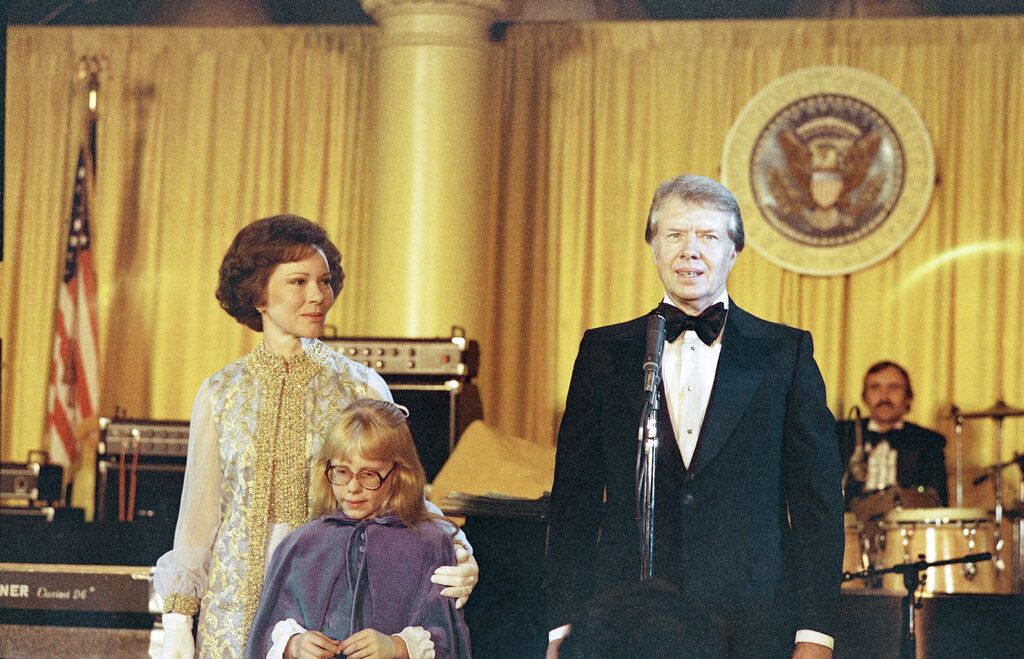The legacy of Jimmy Carter

When I learned about six months ago that former U.S. President Jimmy Carter, born October 1, 1924, had gone into hospice care, I planned to write an article based on the "Crisis of Confidence" speech delivered from the Oval Office on July 15, 1979.
The speech, which has been criticized routinely as a lecture to America about conserving energy and losing confidence in the future, was extremely well written in my view. However, it became a political albatross for Carter because, while it was well written, it was also extremely poorly delivered. To sum up, an "A" for preparation and an "F" for performance.
In preparing to write this article, I also watched a 60 Minutes interview that aired about five years ago and that was conducted by Lesley Stahl, who was White House correspondent during the Carter years. I learned from the interview that Carter successfully passed more legislation through Congress than most other presidents of our time. His energy conservation efforts, despite being unpopular, led to the United States being less dependent on foreign oil than we could ever imagine today or at any time since he left office. Carter's efforts to normalize relations with China were so epic that President Donald Trump once telephoned him for advice on the subject.
But Carter's legacy was perhaps tarnished most by his refusal to use military force to free the diplomats held hostage in Iran beginning in November of 1979. For a moment in time, Carter's diplomatic efforts to negotiate freedom for the 50+ captives won over the American public and helped him ward off a primary challenge from Senator Edward Kennedy of Massachusetts early in 1980.
But the warmth from the public did not last long. Carter stated in the 60 Minutes interview that our military never fired a bullet or a missile during his time in office. I was born in 1973, so Carter, who served from 1977 to 1981, is the first president I remember. I don't remember all the details of the hostage crisis or of the failed "Operation Eagle Claw" attempt to rescue the hostages in April of 1980.
However, knowing what I know now and having thought at one time that Carter was "in over his head" as president, I now believe that Carter, who had only one term as governor of Georgia on his political resume when he ran for president, actually was qualified to serve the nation. He was just too much of an advocate for peace for his own good, politically or otherwise. Some sort of subsequent rescue attempt or some military force that would have been aimed elsewhere than Tehran, where the captives were held, should have been put into action.
After securing the Democratic nomination for president in the summer of 1976, Carter blew a huge lead in the polls over Gerald Ford and held on to a close victory in both the popular vote and the electoral college. The result of the race was not known until the wee hours of the morning following the election. The electoral map is unique for modern times.
Carter won election by sweeping the south, including Florida and Texas. No Democrat has carried Texas since. He lost the mega electoral prize of California but won in the large states of Ohio, Pennsylvania, and New York.
He carried only six states in the Reagan landslide of 1980.
The biggest achievement of the Carter years was the Camp David treaty of 1978 between Israel and Egypt, a treaty that stands in force today.
The Crisis of Confidence speech, glamorized in the movie Miracle about the 1980 U.S. Olympic gold medal hockey team, rang true in many respects. Americans largely were self-indulgent, did not vote, and lacked respect for institutions such as churches and schools. Confidence in the future was at an all-time low.
But the speech could have been delivered so much better. With a few tweaks, it may have even been received well by the public. At the close of the speech, Carter states, "Working together, with our common faith, we cannot fail". By the time he stated that final rally cry, most folks had probably tuned out, wondering why in the world the leader of the free world was saying such things.
Most people realize the great good that Carter and his wife of 77 years, Rosalynn, have accomplished since he left office. As time passes, I think history may be kinder to his presidential legacy, as well.
James A. Rose, Publisher

Comments ()